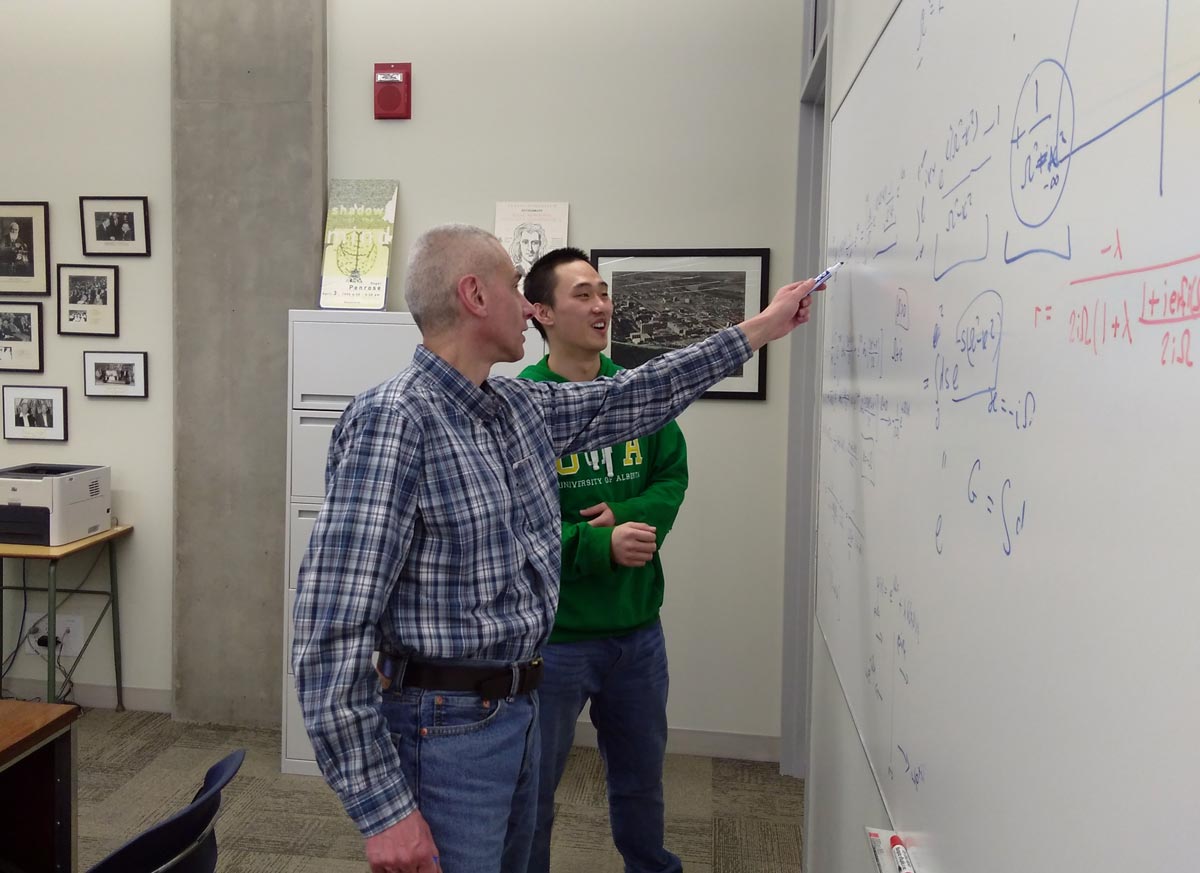
"Theoretical physics allows you to travel to places as large as the galaxy and to see matter as small as atoms or quarks," said Bo Leng.
Congratulations to Bo Leng, new engineering graduand whose passion for theoretical physics has led him into pursuing a master's degree at the Faculty of Science.
During his undergraduate studies, Leng conducted research on theoretical physics with Professor Andrzej Czarnecki from the Department of Physics. In collaboration with Mikhail Voloshin from the University of Minnesota, Leng co-authored a paper on tetrons that was published in Physics Letters earlier this year.
Here, Leng tells us about his experience conducting research on theoretical physics and his future plans at the University of Alberta. He also shares some advice for students considering undergraduate research.
How did you get interested in theoretical physics?
I really enjoy discovering new things, and I have found the same kind of excitement in theoretical physics. Theoretical physics allows you to travel to places as large as the galaxy and to see matter as small as atoms or quarks.
How did you go about tackling such a complicated problem?
At the beginning, I was paired with an honour physics student, Connor Stephens, to master our main approach by applying the variational method for solving the non-relativistic Schrodinger equation. We were trying to hunt "tetron", which is an exotic particle system.
What was the most challenging and the most rewarding parts of your work?
The most challenging part was having faith in the existence of "tetron." When I first started the project, "tetron" just lived in professor Andrzej Czarnecki and Mikhail Voloshin's brilliant imaginations.
The most rewarding part was having the opportunity to work with Andrzej and Misha.
What made you want to pursue summer research during your undergraduate studies?
At the beginning, I was just following the trend because most of my friends in engineering physics were reaching out to professors looking for research positions. Professor Czarnecki taught my favourite class, so I decided to seek a summer research opportunity with him.
He has become a great mentor to me. He advised me on the importance of keeping a notebook and making small progress on your work every day. He also gave me tips on how to study more effectively. He was always invested in my work. I knew my work with him was going to be a long-term project.
Did the discovery have any influence over your decision to pursue graduate work?
I really enjoy the process of learning and solving puzzles. A master's degree along with this discovery are just the first steps to achieve my long-term career goal, which is to become a professor.
What's your advice for other students considering undergraduate research?
Always ask questions, even the simplest ones. Do not be afraid to acknowledge when you don't understand something.